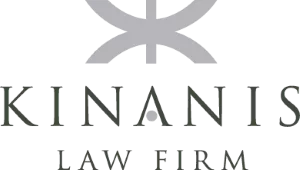- in European Union
A. INTRODUCTION
The Cyprus House of Representatives has recently voted a new law transposing the provisions of the European Union Anti-Tax Avoidance Directive (the "ATAD" or "Directive") into the local legislation.
The ATAD provides for minimum standards that need to be applied by all Member States and constitutes part of the Anti-Tax Avoidance Package established by the EU. The Directive aims to tackle tax avoidance practices and aggressive tax planning.
The ATAD provisions set rules for the following aspects:
Applicable as from 1st of January 2019:
1. Controlled Foreign Company (CFC) rule
2. Interest Limitation rule
3. General Anti abuse rule (GAAR)
Applicable as from 1st of January 2020:
4. Exit Taxation rule
5. Hybrid Mismatches rule.
The main provisions of the above rules which are in force as from 1st of January 2019 are analyzed below. The provisions of the rules applicable as from 1st of January 2020 are not yet introduced into the Cyprus legislation however this is expected to be done before the end of 2019.
B. ANALYSIS OF THE ATAD PROVISIONS APPLICABLE AS FROM 1ST OF JANUARY 2019
1. Controlled Foreign Company (CFC) rule
The rule provides that the CFC income of a CFC is included in the taxable income of a Cyprus tax resident entity and is taxed according to the provisions of the Cyprus legislation. The CFC rule applies to Cyprus tax resident companies and to the permanent establishment in Cyprus of non-Cyprus tax resident companies.
Definitions
CFC: According to the provisions of the Law, a CFC is a non-Cyprus tax resident company or a foreign permanent establishment of a Cyprus tax resident company where its profits are not taxed or are exempt from taxation in Cyprus and the following conditions are met:
- 50% of the voting rights or of the share capital or the rights on the profits of the non-Cyprus tax resident company are held directly or indirectly by a Cyprus tax resident Company (either alone or together with other connected entities),
AND
- The actual income tax paid (the effective tax) on the profits of the non-Cyprus tax resident company is less than 50% of the tax that would have been paid in Cyprus if calculated based on the provisions of the Cyprus Income Tax Laws.
CFC Income: According to the provisions of the Law, the CFC income is the undistributed income of the CFC which was generated from non-genuine arrangements that have been put in place for the essential purpose of obtaining a tax advantage.
The CFC income that is added to the taxable income of the Cyprus Company is calculated based on the percentage holding of the Cyprus company and relates only to the income that originates from assets and risks directly linked with the Significant People Functions performed by the Cyprus Controlling Entity.
The level of income of the CFC that originates from the Significant People Functions performed by the Cyprus Controlling Entity must be determined through a Transfer Pricing Study.
Non-Genuine Arrangements: If the Significant People Functions in relation to the CFC are performed at the level of the Cyprus controlling entity to the extent that the CFC would not have been in a position to have in its possession the assets and to undertake financial risks that generate the income.
Exception
The CFC provisions do not apply if:
- the accounting profits of the CFC Company do not exceed €750.000 AND the passive income is not more than €75.000.
Or
- The accounting profits of the CFC Company do not exceed 10% of its operating expenses for the tax year.
Elimination of double taxation
The Law provides for the avoidance of the double taxation profits distributed as dividends from a CFC or profits from the sale of a CFC to be reduced by previously regarded CFC income which was taxed under the CFC rules.
Tax credit
In accordance to the Law, the Cyprus controlling entity is eligible to claim, with no restriction, any overseas tax paid on the CFC profits included in its tax base.
2. Interest Limitation Rule
The rule provides that the exceeding borrowing costs that are more than 30% of the Tax-Adjusted EBITDA (Earnings Before Interest Tax Depreciation Amortisation) shall not be deducted for the purpose of calculating the taxable income of the company. However, the rule provides that exceeding borrowing costs up to EUR 3 million to be excluded from the above limitation.
The interest limitation rules apply to both Cyprus tax resident companies and non- Cyprus tax resident companies having a permanent establishment in Cyprus.
Main objective of this rule is to "limit deductibility of taxpayers' exceeding borrowing costs" due to the fact that groups tend to engage in base erosion and profit shifting, in order to reduce their global tax liability, through the deductibility excessive interest payments.
Definitions
Exceeding Borrowing Cost (EBC)
EBC is defined as the amount by which the borrowing cost of a taxpayer which is deductible for tax purposes, exceeds the taxable income from interest and other economically equivalent revenues which are taxable according to the Income Tax Law in Cyprus.
The term 'Borrowing costs' follows the definition of the Directive and includes the loan interest expense on all forms of debt, other costs economically equivalent to interest and expenses incurred from the raising of financing (both intra-group and third party loans).
Tax adjusted EBITDA
Based on the Law provisions, the tax adjusted EBITDA is calculated by adding to the taxable income of the year the exceeding borrowing cost and the adjusted amounts for deductions, allowances and additions with regards to fixed and intangible assets. Losses brought forward are not taken into account for the calculation of EBITDA.
Exemptions
Interest limitation rule shall not apply to:
- Stand-alone entities (an entity not part of a consolidated group for accounting purposes and which has no associated entities or PE)
- Loans concluded before 17 June 2016 (unless amended)
- Financial undertakings (credit institutions, AIFs, insurance)
The Law also includes an equity escape rule allowing full deduction of borrowing costs if the local taxpayer's ratio of equity to total assets is not more than two percentage points lower than the equivalent group ratio.
Any exceeding borrowing costs not allowed for deduction in a tax year due to the restrictions of the limitation rules, may be carried forward for the next five years.
Interest Limitation on a group level
If the taxpayer is part of a Cypriot group as defined in section 13 of the Income Tax Law then the rule will apply on a group level. In this respect the 3 million limitation will apply for the whole group and the Tax adjusted EBITDA used will be the one of the group.
3. General Anti-Abuse Rule (GAAR)
The rule aims to ignore a non-genuine arrangement or series of non-genuine arrangements for purposes of calculating the corporate income tax liability if they have been put into place for the main purpose or one of the main purposes of obtaining a tax advantage that defeats the object or purpose of the applicable tax law.
The taxpayer's tax liability will be computed in accordance to the provisions of the Cyprus Income Tax Law in the instance where arrangements are disregarded as explained above.
C. PURPOSE OF THE ATAD PROVISIONS APPLICABLE AS FROM 1ST OF JANNUARY 2020
1. Exit-taxation
Aims to tax the difference between tax book value and market value upon asset transfers between entities, head office and PEs and different PEs, as well as tax residency transfers.
2. Anti-hybrid mismatch rules (1/1/2020)
Aims to deny deduction or to include income in case of hybrid mismatches that result in a double deduction or a deduction without inclusion.
D. CONCLUSION
Considering the practical implementation of the above rules it is expected that the Cyprus Tax Authorities will provide further clarifications through interpretative circulars.
The new provisions introduced in the Income Tax Law, are expected to affect a significant number of companies operating in Cyprus. In this respect, is of imperative importance the corporate taxpayers to perform an ongoing review on their business structures irrespective of their activities in order to ensure compliance with the laws and regulations.
E. HOW KINANIS LLC CAN ASSIST
Kinanis LLC is in a position to assist you with the provision of the following services:
- General tax advice on the above rules.
- Review of client's structure and advice the implication based on the above new rules.
- Obtaining of tax rulings on specific issues.
- Issuing of tax opinions.
- Preparation of a transfer pricing study for establishing the level of taxable income of the CFC.
The content of this article is intended to provide a general guide to the subject matter. Specialist advice should be sought about your specific circumstances.



